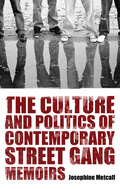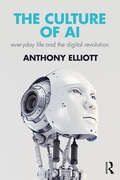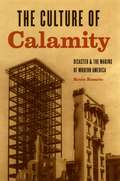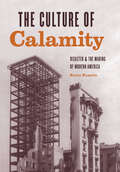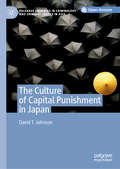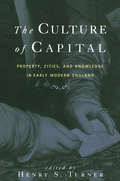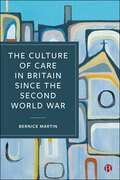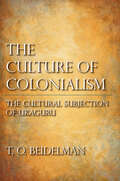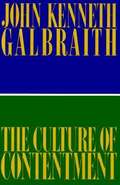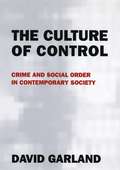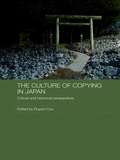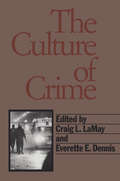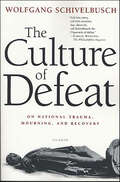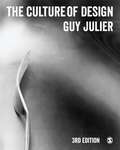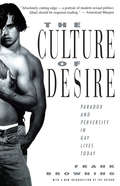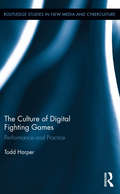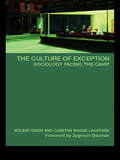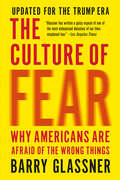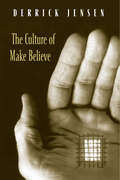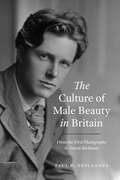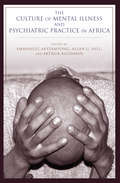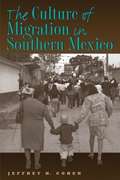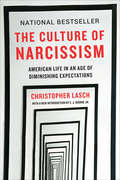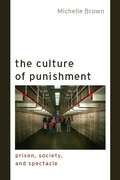- Table View
- List View
The Culture and Politics of Contemporary Street Gang Memoirs
by Josephine MetcalfThe publication of Sanyika Shakur's Monster: The Autobiography of an L.A. Gang Member in 1993 generated a huge amount of excitement in literary circles—New York Times book critic Michiko Kakutani deemed it a “shocking and galvanic book”—and set off a new publishing trend of gang memoirs in the 1990s. The memoirs showcased tales of violent confrontation and territorial belonging but also offered many of the first journalistic and autobiographical accounts of the much-mythologized gang subculture. In The Culture and Politics of Contemporary Street Gang Memoirs, Josephine Metcalf focuses on three of these memoirs—Shakur’s Monster; Luis J. Rodriguez’s Always Running: La Vida Loca: Gang Days in L.A.; and Stanley “Tookie” Williams’s Blue Rage, Black Redemption—as key representatives of the gang autobiography. Metcalf examines the conflict among violence, thrilling sensationalism, and the authorial desire to instruct and warn competing within these works. The narrative arcs of the memoirs themselves rest on the process of conversion from brutal, young gang bangers to nonviolent, enlightened citizens. Metcalf analyzes the emergence, production, marketing, and reception of gang memoirs. Through interviews with Rodriguez, Shakur, and Barbara Cottman Becnel (Williams’s editor), Metcalf reveals both the writing and publishing processes. This book analyzes key narrative conventions, specifically how diction, dialogue, and narrative arcs shape the works. The book also explores how these memoirs are consumed. This interdisciplinary study—fusing literary criticism, sociology, ethnography, reader-response study, and editorial theory—brings scholarly attention to a popular, much-discussed, but understudied modern expression.
The Culture of AI: Everyday Life and the Digital Revolution
by Anthony ElliottIn this ground-breaking book, Cambridge-trained sociologist Anthony Elliott argues that much of what passes for conventional wisdom about artificial intelligence is either ill-considered or plain wrong. The reason? The AI revolution is not so much about cyborgs and super-robots in the future, but rather massive changes in the here-and-now of everyday life. In The Culture of AI, Elliott explores how intelligent machines, advanced robotics, accelerating automation, big data and the Internet of Everything impact upon day-to-day life and contemporary societies. With remarkable clarity and insight, Elliott’s examination of the reordering of everyday life highlights the centrality of AI to everything we do – from receiving Amazon recommendations to requesting Uber, and from getting information from virtual personal assistants to talking with chatbots. The rise of intelligent machines transforms the global economy and threatens jobs, but equally there are other major challenges to contemporary societies – although these challenges are unfolding in complex and uneven ways across the globe. The Culture of AI explores technological innovations from industrial robots to softbots, and from self-driving cars to military drones – and along the way provides detailed treatments of: The history of AI and the advent of the digital universe; automated technology, jobs and employment; the self and private life in times of accelerating machine intelligence; AI and new forms of social interaction; automated vehicles and new warfare; and, the future of AI. Written by one of the world’s foremost social theorists, The Culture of AI is a major contribution to the field and a provocative reflection on one of the most urgent issues of our time. It will be essential reading to those working in a wide variety of disciplines including sociology, science and technology studies, politics, and cultural studies.
The Culture of Calamity
by Kevin RozarioTurn on the news and it looks as if we live in a time and place unusually consumed by the specter of disaster. The events of 9/11 and the promise of future attacks, Hurricane Katrina and the destruction of New Orleans, and the inevitable consequences of environmental devastation all contribute to an atmosphere of imminent doom. But reading an account of the San Francisco earthquake of 1906, with its vivid evocation of buildings "crumbling as one might crush a biscuit," we see that calamities--whether natural or man-made--have long had an impact on the American consciousness. Uncovering the history of Americans' responses to disaster from their colonial past up to the present, Kevin Rozario reveals the vital role that calamity--and our abiding fascination with it--has played in the development of this nation. Beginning with the Puritan view of disaster as God's instrument of correction, Rozario explores how catastrophic events frequently inspired positive reactions. He argues that they have shaped American life by providing an opportunity to take stock of our values and social institutions. Destruction leads naturally to rebuilding, and here we learn that disasters have been a boon to capitalism, and, paradoxically, indispensable to the construction of dominant American ideas of progress. As Rozario turns to the present, he finds that the impulse to respond creatively to disasters is mitigated by a mania for security. Terror alerts and duct tape represent the cynical politician's attitude about 9/11, but Rozario focuses on how the attacks registered in the popular imagination--how responses to genuine calamity were mediated by the hyperreal thrills of movies; how apocalyptic literature, like the best-selling Left Behind series, recycles Puritan religious outlooks while adopting Hollywood's style; and how the convergence of these two ways of imagining disaster points to a new postmodern culture of calamity.The Culture of Calamitywill stand as the definitive diagnosis of the peculiarly American addiction to the spectacle of destruction.
The Culture of Calamity: Disaster & the Making of Modern America
by Kevin RozarioTurn on the news and it looks as if we live in a time and place unusually consumed by the specter of disaster. The events of 9/11 and the promise of future attacks, Hurricane Katrina and the destruction of New Orleans, and the inevitable consequences of environmental devastation all contribute to an atmosphere of imminent doom. But reading an account of the San Francisco earthquake of 1906, with its vivid evocation of buildings “crumbling as one might crush a biscuit,” we see that calamities—whether natural or man-made—have long had an impact on the American consciousness. Uncovering the history of Americans’ responses to disaster from their colonial past up to the present, Kevin Rozario reveals the vital role that calamity—and our abiding fascination with it—has played in the development of this nation. Beginning with the Puritan view of disaster as God’s instrument of correction, Rozario explores how catastrophic events frequently inspired positive reactions. He argues that they have shaped American life by providing an opportunity to take stock of our values and social institutions. Destruction leads naturally to rebuilding, and here we learn that disasters have been a boon to capitalism, and, paradoxically, indispensable to the construction of dominant American ideas of progress. As Rozario turns to the present, he finds that the impulse to respond creatively to disasters is mitigated by a mania for security. Terror alerts and duct tape represent the cynical politician’s attitude about 9/11, but Rozario focuses on how the attacks registered in the popular imagination—how responses to genuine calamity were mediated by the hyperreal thrills of movies; how apocalyptic literature, like the best-selling Left Behind series, recycles Puritan religious outlooks while adopting Hollywood’s style; and how the convergence of these two ways of imagining disaster points to a new postmodern culture of calamity. The Culture of Calamity will stand as the definitive diagnosis of the peculiarly American addiction to the spectacle of destruction.
The Culture of Capital Punishment in Japan (Palgrave Advances in Criminology and Criminal Justice in Asia)
by David T. JohnsonThis open access book provides a comparative perspective on capital punishment in Japan and the United States. Alongside the US, Japan is one of only a few developed democracies in the world which retains capital punishment and continues to carry out executions on a regular basis. There are some similarities between the two systems of capital punishment but there are also many striking differences. These include differences in capital jurisprudence, execution method, the nature and extent of secrecy surrounding death penalty deliberations and executions, institutional capacities to prevent and discover wrongful convictions, orientations to lay participation and to victim participation, and orientations to “democracy” and governance. Johnson also explores several fundamental issues about the ultimate criminal penalty, such as the proper role of citizen preferences in governing a system of punishment and the relevance of the feelings of victims and survivors.
The Culture of Capital: Property, Cities, and Knowledge in Early Modern England
by Henry S. TurnerLeading literary critics and historians reassess one of the defining features of early modern England -the idea of "capital." The collection reevaluates the different aspects of the concept amidst the profound changes of the period.
The Culture of Care in Britain since the Second World War
by Bernice MartinThis book examines the evolving value of caregiving in Britain, from the welfare state's inception to the present day. It explores the shifts in discourse surrounding care, charting key social, demographic, economic, political and cultural changes which have led to the current 'care crisis'. The author examines five key themes: the tension within institutional Christianity between caring for the marginalized versus maintaining 'respectability'; the secularization of the value of care and its interaction with emerging social divisions; the persistent expectation that women bear the caregiving burden; the economic and social undervaluation of emotional and practical care work; and the challenges facing the care and health sectors. The author suggests that recalibrating the tax system to shift the burden from incomes to profits may be necessary for the survival of welfare systems under these new conditions.
The Culture of Colonialism: The Cultural Subjection of Ukaguru (African Systems of Thought)
by T. O. BeidelmanWhat did it mean to be an African subject living in remote areas of Tanganyika at the end of the colonial era? For the Kaguru of Tanganyika, it meant daily confrontation with the black and white governmental officials tasked with bringing this rural people into the mainstream of colonial African life. T. O. Beidelman's detailed narrative links this administrative world to the Kaguru's wider social, cultural, and geographical milieu, and to the political history, ideas of indirect rule, and the white institutions that loomed just beyond their world. Beidelman unveils the colonial system's problems as it extended its authority into rural areas and shows how these problems persisted even after African independence.
The Culture of Contentment
by John Kenneth GalbraithA concise, contumacious critique of the complacent class that rules America in the interest of its own comfort, by distinguished economist Galbraith (emeritus, Harvard U.).
The Culture of Control: Crime and Social Order in Contemporary Society
by David GarlandThe past 30 years have seen vast changes in our attitudes toward crime. More and more of us live in gated communities; prison populations have skyrocketed; and issues such as racial profiling, community policing, and "zero-tolerance" policies dominate the headlines. How is it that our response to crime and our sense of criminal justice has come to be so dramatically reconfigured? David Garland charts the changes in crime and criminal justice in America and Britain over the past twenty-five years, showing how they have been shaped by two underlying social forces: the distinctive social organization of late modernity and the neoconservative politics that came to dominate the United States and the United Kingdom in the 1980s. Garland explains how the new policies of crime and punishment, welfare and security--and the changing class, race, and gender relations that underpin them--are linked to the fundamental problems of governing contemporary societies, as states, corporations, and private citizens grapple with a volatile economy and a culture that combines expanded personal freedom with relaxed social controls. It is the risky, unfixed character of modern life that underlies our accelerating concern with control and crime control in particular. It is not just crime that has changed; society has changed as well, and this transformation has reshaped criminological thought, public policy, and the cultural meaning of crime and criminals. David Garland'sThe Culture of Controloffers a brilliant guide to this process and its still-reverberating consequences.
The Culture of Copying in Japan: Critical and Historical Perspectives (Japan Anthropology Workshop Series)
by Rupert CoxThis book challenges the perception of Japan as a ‘copying culture’ through a series of detailed ethnographic and historical case studies. It addresses a question about why the West has had such a fascination for the adeptness with which the Japanese apparently assimilate all things foreign and at the same time such a fear of their skill at artificially remaking and automating the world around them. Countering the idea of a Japan that deviously or ingenuously copies others, it elucidates the history of creative exchanges with the outside world and the particular myths, philosophies and concepts which are emblematic of the origins and originality of copying in Japan. The volume demonstrates the diversity and creativity of copying in the Japanese context through the translation of a series of otherwise loosely related ideas and concepts into objects, images, texts and practices of reproduction, which include: shamanic theatre, puppetry, tea utensils, Kyoto town houses, architectural models, genres of painting, calligraphy, and poetry, ‘sample’ food displays, and the fashion and car industries.
The Culture of Crime
by Boaz GanorThere is no journalistic work more deserving of the designation "story" than news of crime. From antiquity, the culture of crime has been about the human condition, and whether information comes from Homer, Hollywood, or the city desk, it is a bottom about the human capacity for cruelty and suffering, about desperation and fear, about sex, race, and public morals. Facts are important to the telling of a crime story, but ultimately less so than the often apocryphal narratives we derive from them.The Culture of Crime is hence about the most common and least studies staple of news. Its prominence dates at least to the 1830s, when the urban penny press employed violence, sex, and scandal to build dizzying high levels of circulation and begin the modern age of mass media. In its coverage of crime, in particular, the popular press represented a new kind of journalism, if not a new definition of news, that made available for public consumption whole areas of social and private life that the mercantile, elite, and political press earlier ignored. This legacy has continued unabated for 150 years. The book explores new wrinkles in the study of crime and as a mass cultural activity from exploring the private lives of public officials to dangers posed by constraints to a free press.The volume is prepared with the rigor of a scholarly brief but also the excitement of actual crime stories as such. Throughout, the reader is reminded that crime stories are both news and drama, and to ignore either is to diminish the other. The work delves deeply into current problems without either sentimental or trivial pursuits. It will be a volume of great interest to people in communications research, the social sciences, criminologists, and not least, the broad public which must endure the punishment of crime and the thrill of the crime story alike.
The Culture of Defeat: On National Trauma, Mourning, and Recovery
by Wolfgang Schivelbusch Jefferson ChaseHow defeated nations have handled it.
The Culture of Defeat: On National Trauma, Mourning, and Recovery
by Wolfgang SchivelbuschA fascinating look at history's losers-the myths they create to cope with defeat and the steps they take never to be vanquished againHistory may be written by the victors, Wolfgang Schivelbusch argues in his brilliant and provocative book, but the losers often have the final word. Focusing on three seminal cases of modern warfare-the South after the Civil War, France in the wake of the Franco-Prussian War, and Germany following World War I-Schivelbusch reveals the complex psychological and cultural reactions of vanquished nations to the experience of military defeat.Drawing on responses from every level of society, Schivelbusch shows how conquered societies question the foundations of their identities and strive to emulate the victors: the South to become a "better North," the French to militarize their schools on the Prussian model, the Germans to adopt all things American. He charts the losers' paradoxical equation of military failure with cultural superiority as they generate myths to glorify their pasts and explain their losses: the nostalgic "plantation legend" after the fall of the Confederacy; the cult of Joan of Arc in vanquished France; the fiction of the stab in the back by "foreign" elements in postwar Germany. From cathartic epidemics of "dance madness" to the revolutions that so often follow battlefield humiliation, Schivelbusch finds remarkable similarities across cultures.Eloquently and vibrantly told, The Culture of Defeat is a tour de force that opens new territory for historical inquiry.
The Culture of Design: The Journal Of The Design Studies Forum (Culture, Media And Identities Ser.)
by Guy JulierWhat is the social impact of design? How do culture and economics shape the objects and spaces we take for granted? How do design objects, designers, producers and consumers interrelate to create experience? How do new networks of communication and technology change the design process? Thoroughly revised, this new edition: explores the iPhone digs deep into the digital with a new chapter on networks and mobile technologies provides a new chapter on studying design culture explores the relationship of design to management and the creative industries supports students with a revamped website and all new exercises This is an essential companion for students of design, the creative industries, visual culture, material culture and sociology.
The Culture of Desire: Paradox and Perversity in Gay Lives Today
by Frank BrowningIs there such a thing as an American gay culture--a set of styles, values, and behaviors that arises not from ethnicity or religion but from sexual orientation? How is that culture transmitted? And how is it likely to survive the depredations of homophobia and AIDS? These questions are explored by Browning, a reporter for NPR.
The Culture of Digital Fighting Games: Performance and Practice (Routledge Studies in New Media and Cyberculture)
by Todd HarperThis book examines the complex network of influences that collide in the culture of digital fighting games. Players from all over the world engage in competitive combat with one another, forming communities in both real and virtual spaces, attending tournaments and battling online via internet-connected home game consoles. But what is the logic behind their shared playstyle and culture? What are the threads that tie them together, and how does this inform our understanding of competitive gaming, community, and identity? Informed by observations made at one of the biggest fighting game events in the world – the Evolution Series tournament, or "EVO" – and interviews with fighting game players themselves, this book covers everything from the influence of arcade spaces, to the place of gender and ethnicity in the community, to the clash of philosophies over how these games should be played in the first place. In the process, it establishes the role of technology, gameplay, and community in how these players define both themselves and the games that they play.
The Culture of Exception: Sociology Facing the Camp (International Library of Sociology)
by Bulent Diken Carsten B. LaustsenWe live in an ever-fragmenting society, in which distinctions between culture and nature, biology and politics, law and transgression, mobility and immobility, reality and representation, seem to be disappearing. This book demonstrates the hidden logic beneath this process, which is also the logic of 'the camp'. Social theory has traditionally interpreted the camp as an anomaly, as an exceptional site situated on the margins of society, aiming to neutralize its 'failed citizens' and 'enemies'. However, in contemporary society, 'the camp' has now become the rule and consequently a new interrogation of its logic is necessary.In this exceptional volume, the authors explore the paradox of the camp, as representing both an old fear of enclosure and a new dream of belonging. They illustrate their arguments by drawing on contemporary sites of exemption - such as refugee camps, rape camps and favelas - as well as sites of self-exemption including gated communities, party tourism and celebrity cultures.
The Culture of Fear: Why Americans Are Afraid of the Wrong Things: Crime, Drugs, Minorities, Teen Moms, Killer Kids, Muta
by Barry GlassnerIn the age of 9/11, the Iraq War, financial collapse, and Amber Alerts, our society is defined by fear. So it's not surprising that three out of four Americans say they feel more fearful today then they did twenty years ago. But are we living in exceptionally dangerous times? In The Culture of Fear, sociologist Barry Glassner demonstrates that it is our perception of danger that has increased, not the actual level of risk. Glassner exposes the people and organizations that manipulate our perceptions and profit from our fears, including advocacy groups that raise money by exaggerating the prevalence of particular diseases and politicians who win elections by heightening concerns about crime, drug use, and terrorism. In this new edition of a classic book-more relevant now than when it was first published-Glassner exposes the price we pay for social panic.
The Culture of Make Believe
by Derrick JensenDerrick Jensen takes no prisoners in The Culture of Make Believe, his brilliant and eagerly awaited follow-up to his powerful and lyrical A Language Older Than Words. What begins as an exploration of the lines of thought and experience that run between the massive lynchings in early twentieth-century America to today's death squads in South America soon explodes into an examination of the very heart of our civilization. The Culture of Make Believe is a book that is as impeccably researched as it is moving, with conclusions as far-reaching as they are shocking.
The Culture of Male Beauty in Britain: From the First Photographs to David Beckham
by Paul R. DeslandesA heavily illustrated history of two centuries of male beauty in British culture. Spanning the decades from the rise of photography to the age of the selfie, this book traces the complex visual and consumer cultures that shaped masculine beauty in Britain, examining the realms of advertising, health, pornography, psychology, sport, and celebrity culture. Paul R. Deslandes chronicles the shifting standards of male beauty in British culture—from the rising cult of the athlete to changing views on hairlessness—while connecting discussions of youth, fitness, and beauty to growing concerns about race, empire, and degeneracy. From earlier beauty show contestants and youth-obsessed artists, the book moves through the decades into considerations of disfigured soldiers, physique models, body-conscious gay men, and celebrities such as David Beckham and David Gandy who populate the worlds of television and social media. Deslandes calls on historians to take beauty and gendered aesthetics seriously while recasting how we think about the place of physical appearance in historical study, the intersection of different forms of high and popular culture, and what has been at stake for men in “looking good.”
The Culture of Mental Illness and Psychiatric Practice in Africa
by Arthur Kleinman Emmanuel Akyeampong Allan G. HillIn many African countries, mental health issues, including the burden of serious mental illness and trauma, have not been adequately addressed. These essays shed light on the treatment of common and chronic mental disorders, including mental illness and treatment in the current climate of economic and political instability, access to health care, access to medicines, and the impact of HIV-AIDS and other chronic illness on mental health. While problems are rampant and carry real and devastating consequences, this volume promotes an understanding of the African mental health landscape in service of reform.
The Culture of Migration in Southern Mexico
by Jeffrey H. CohenMigration is a way of life for many individuals and even families in the Mexican state of Oaxaca. Some who leave their rural communities go only as far as the state capital, while others migrate to other parts of Mexico and to the United States. Most send money back to their communities, and many return to their homes after a few years. Migration offers Oaxacans economic opportunities that are not always available locally--but it also creates burdens for those who stay behind. This book explores the complex constellation of factors that cause rural Oaxacans to migrate, the historical and contemporary patterns of their migration, the effects of migration on families and communities, and the economic, cultural, and social reasons why many Oaxacans choose not to migrate. Jeffrey Cohen draws on fieldwork and survey data from twelve communities in the central valleys of Oaxaca to give an encompassing view of the factors that drive migration and determine its outcomes. He demonstrates conclusively that, while migration is an effective way to make a living, no single model can explain the patterns of migration in southern Mexico.
The Culture of Narcissism: American Life In An Age Of Diminishing Expectations
by Christopher LaschThe classic New York Times bestseller, with a new introduction by E.J. Dionne Jr. When The Culture of Narcissism was first published in 1979, Christopher Lasch was hailed as a “biblical prophet” (Time). Lasch’s identification of narcissism as not only an individual ailment but also a burgeoning social epidemic was groundbreaking. His diagnosis of American culture is even more relevant today, predicting the limitless expansion of the anxious and grasping narcissistic self into every part of American life. The Culture of Narcissism offers an astute and urgent analysis of what we need to know in these troubled times.
The Culture of Punishment: Prison, Society, and Spectacle (Alternative Criminology #23)
by Michelle BrownAmerica is the most punitive nation in the world, incarcerating more than 2.3 million people—or one in 136 of its residents. Against the backdrop of this unprecedented mass imprisonment, punishment permeates everyday life, carrying with it complex cultural meanings. In The Culture of Punishment, Michelle Brown goes beyond prison gates and into the routine and popular engagements of everyday life, showing that those of us most distanced from the practice of punishment tend to be particularly harsh in our judgments.The Culture of Punishment takes readers on a tour of the sites where culture and punishment meet—television shows, movies, prison tourism, and post 9/11 new war prisons—demonstrating that because incarceration affects people along distinct race and class lines, it is only a privileged group of citizens who are removed from the experience of incarceration. These penal spectators, who often sanction the infliction of pain from a distance, risk overlooking the reasons for democratic oversight of the project of punishment and, more broadly, justifications for the prohibition of pain.
